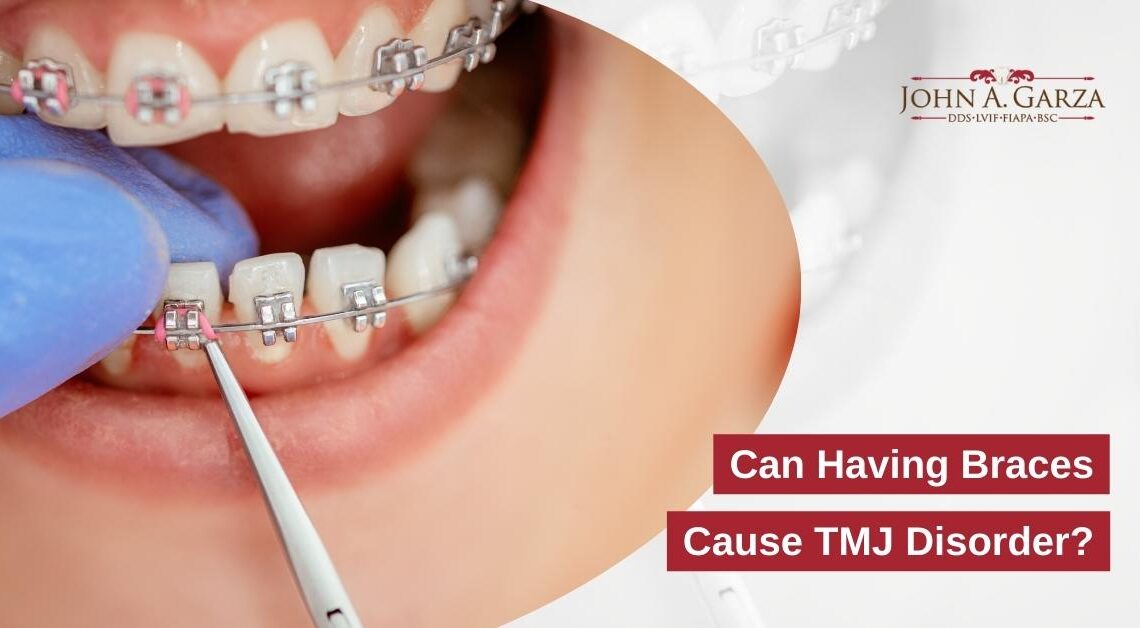The temporomandibular joint is the name given to both joints on either side of your jaw. The most common name for the joints is “TMJ,” which stands for temporomandibular joint. The temporomandibular joint (TMJ) is an intricate network of muscles and ligaments that serves as an attachment point between the mandible (lower jaw) and the base of the skull.
Temporomandibular joint dysfunction, often known as TMD or TMJD, is a condition that arises when the temporomandibular joint (TMJ) does not function properly or has painful flare-ups. In addition, the underlying reason for your TMJ issue is a factor in determining whether or not you will need braces as part of your overall treatment plan for the condition.
What Is TMJ Disorder?
The temporomandibular joint, often known as the TMJ, is one of the joints in the human body that is utilized the most frequently. It may be found directly in front of both of your ears and connects your jaw to the sides of your head. Additionally, it is linked to several facial muscles as well as nerves.
This joint allows us to yawn, speak, chew, and bite properly. Disorders and conditions related to the temporomandibular joint can lead to the jaw developing significant pain and improper functioning. These disorders and conditions include temporomandibular joint disorder, also known as TMJ disorder. The temporomandibular joint is responsible for a significant amount of activity. Temporomandibular joint disorder (TMJ disorder) is caused when the temporomandibular joint is misaligned or when it sustains trauma, which results in restricted or incorrect movement of the joint.
Can Braces Cause TMJ Disorder?
Many studies have been conducted to investigate whether or not there is a correlation or relationship between orthodontic treatment and TMJ condition. Since the results have been inconsistent, other specialists have provided their perspectives on the matter.
The possibility of a causal link between orthodontic treatment and TMJ dysfunction is deemed by other authorities to be quite remote. An improper bite does not necessarily cause TMJ dysfunction. Only the anterior open bite and the posterior crossbite are consistently related with a higher prevalence of joint disorders out of the many forms of malocclusions. People with other “poor bites” do not report TMJ pain in substantial numbers. The fact that many persons with perfectly aligned bites also have TMJ has led doctors to conclude that there is only a minimal link between the two conditions.
What are the reasons behind TMJ disorder? According to Johns Hopkins Medicine, the root problems aren’t always easy to pin down. The possible causes are traumatic injuries, habitual teeth grinding (bruxism), arthritis, fibromyalgia, and dislocation of the discs in the jaw joint. Researchers aren’t always able to zero in on the specific reason behind a patient’s TMJ condition. On the other hand, they have compiled a list of clinical, genetic, sensory, psychological, and nervous system characteristics that may raise your risk of developing problems with your temporomandibular joint (TMJ).
If you have never experienced discomfort in your TMJ but have started to experience TMJ symptoms since getting braces, you should contact an orthodontics specialist as soon as possible.
It is normal for most patients to suffer pain and even headaches when they initially get their braces fitted or readjusted. If this happens to you, do not be alarmed. Both of these symptoms are also indicative of a problem with the TMJ. If the pain and headaches continue for more than a few days, you may suffer TMJ troubles rather than the regular pain associated with getting braces put on or adjusted. TMJ stands for temporomandibular joint disorder.
Unfortunately, some orthodontists and general dentists who provide orthodontic services are not well-trained in the relationship between alignment, bite, and TMJ. Most orthodontic treatments aim primarily to correct teeth, especially if there are no pre-existing TMJ disorders. They then slap some braces on you and straighten your smile so that it appears wonderful, but they pay little to no attention to how the equilibrium of your natural bite and jaw joint may have been upset as a result of these adjustments.
Talk to your orthodontist about your alternatives; the best answer can be as simple as having your braces readjusted so that there is less pressure coming from your jaw muscles.
When to Seek Help for TMJ
If you have jaw pain and wear braces, bring it up to your orthodontist at your next appointment. They will want to know about it. On the other hand, if you have TMJ and believe that alignment issues in your mouth may cause it, then it is highly recommended that you consult with an orthodontist as soon as possible.
If you had braces in the past and are now experiencing symptoms of TMJ, an essential thing for you to keep in mind is that if you decide to seek treatment for your condition, you should select a dentist, orthodontist, or TMJ specialist who is well-trained in the treatment of TMJ issues. Suppose you are thinking about getting braces for the first time and are concerned about developing TMJ dysfunction. In that case, you should make sure to choose a dentist or orthodontist who understands the delicate balance of tooth alignment, bite, and TMJ, and you should also make sure to express your concern to your doctor.
Read more: What Happens if TMJ Disorder is Left Untreated?
Learn more about can braces cause TMJ by consulting Garza DDS
When considering all of the factors involved, it is clear to understand how braces by themselves are not generally sufficient in producing TMJ issues. However, people requiring braces have abnormalities with their teeth’ alignment, which can extend to the jaw and generate pain comparable to that caused by TMJ. If you are experiencing pain and believe it may be related to your braces, please consult a dental professional like Dr. Garza for more information.


